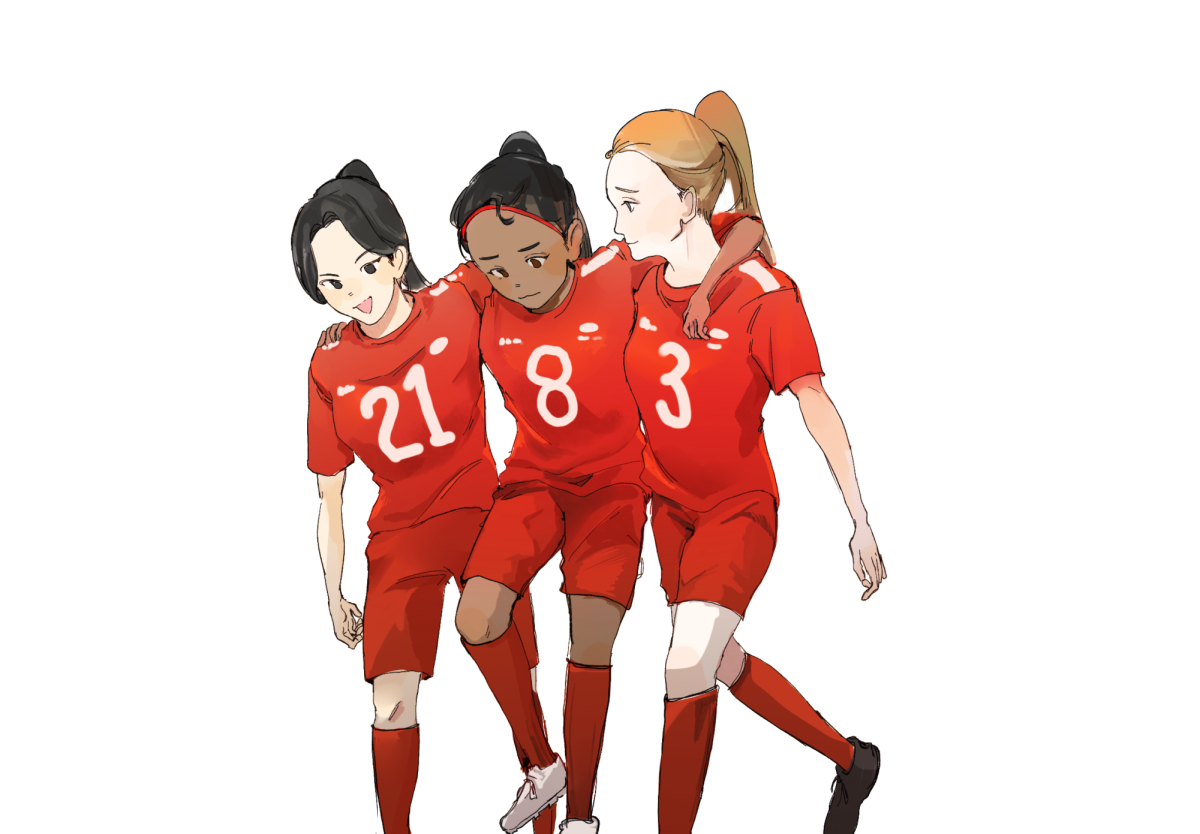Beyond thrilling spectacles that unite fans, major sporting events like the Olympics and the soccer World Cup provide platforms for athletes to showcase their talent and dedication. These monumental events, however, are often tainted by the dark realities female athletes and employees face. A 2018 report conducted by the U.K. charity Women in Sport found that 40% of women in the sports industry say they have faced gender discrimination. This reality undermines the integrity of the sports industry, and it is imperative that the institutions overseeing these events uphold the highest standards of accountability when addressing cases of inappropriate behavior.
In April 2014, gymnast Amanda Thomashow, a Michigan State University graduate, filed a Title IX complaint against team physician Larry Nassar, alleging inappropriate behavior during a medical examination. However, the university’s inquiry dismissed Thomashow’s complaint and ruled Nassar’s behavior as “medically appropriate.” Nassar was allowed to continue working at MSU for two more years until Sept. 20, 2016, when he was finally fired. It took until 2018 for Nassar to be convicted and sentenced to 60 years in federal prison, after 18 victims filed a federal lawsuit against Nassar, MSU, USA Gymnastics and Twistars USA Gymnastics Club, alleging sexual assault, battery, molestation and harassment between 1996 and 2016.
Negligence in addressing these complaints causes repercussions extending beyond individual cases, eroding trust in entire organizations. Although the resignation of the USA Gymnastics board in 2018 was a step in the right direction, it came years too late for those who had suffered Nassar’s abuse. In 2021, Olympic gymnast Simone Biles shared in an interview that she wouldn’t be comfortable with her daughter’s training with USA Gymnastics, given the organization’s lack of accountability. This sentiment is just one example from the many gymnasts who felt the sport’s governing body had failed to protect and listen to them. USA Gymnastics’ failure to take complaints seriously and act swiftly exacerbates survivors’ trauma and perpetuates a culture of impunity for perpetrators.
While Nassar’s abuse may be the most prominent example of sexual misconduct in sports, it is not an isolated phenomenon. Similar patterns of abuse have emerged in other high-level sports organizations, including USA Taekwondo, where coaches like Jean Lopez have been accused of exploiting their positions of power to prey on female athletes. Lopez was accused of abuse by multiple female athletes and banned from coaching for life by the organization, after a 2018 U.S. Center for Safesport investigation concluded that Lopez had “a decade-long pattern of sexual misconduct” and used his power to “groom, manipulate, and ultimately sexually abuse younger female athletes.” However, in December 2022, the International Court of Arbitration lifted the lifetime ban, as it had been based on the 2011 Code of Ethics, which was only instituted after the incidents had occurred.
The lifting of this “lifetime” ban raises serious concerns about the efficacy of disciplinary measures and the prioritization of justice for survivors.
Moreover, misconduct in the sporting world extends beyond staff and coaches to the executive personnel of sporting organizations. At the 2023 Women’s World Cup award ceremony, Luis Rubiales, former Royal Spanish Football Federation president, kissed Spanish national soccer player Jenni Hermoso without consent.
In an emergency meeting called by the Royal Spanish Football Federation, Rubiales denied any wrongdoing and claimed the kiss was consensual. Later that year, at the Federation’s Extraordinary General Assembly, Rubiales claimed that he had been the target of “social assassination” and continually restated that he would not resign. The Royal Spanish Football Federation sided with Rubiales, accusing Hermoso of lying about the kiss and threatening to take legal action against her. Rubiales’ resignation came only after more than 80 other Spanish soccer players put their names on a statement supporting Hermoso, saying they would not return to the national team if the case were not resolved fairly.
Nassar’s exploitation of female gymnasts, Lopez’s predatory behavior toward female taekwondo athletes and Rubiales’ refusal to accept accountability highlight systematic failures that require meaningful reforms. The delayed responses, inadequate actions and sometimes even complicity of sporting institutions erode the trust of female athletes, fans and staff members. A commitment to accountability at all levels of sports governance is crucial, as female athletes should not have to publicly fight for their complaints to be taken seriously.
Moving forward, sports organizations must prioritize the well-being and safety of all involved parties. They should implement robust safeguarding measures and ensure swift and decisive action in response to misconduct. Abuse should not have to escalate into yearslong patterns before accusations are taken seriously — every complaint should be thoroughly investigated.
If misconduct isn’t addressed at the professional level, it sets a precedent of impunity, meaning that abuse at the high- school level may also go unpunished. By actively listening to survivors, addressing systemic flaws and holding perpetrators accountable, organizations can create sporting environments in which everyone can thrive without fear of exploitation, fostering a culture of integrity in the sports community.























